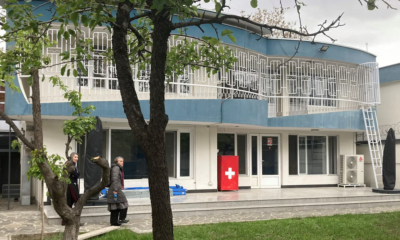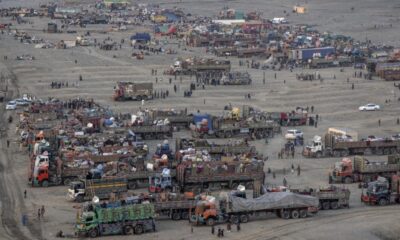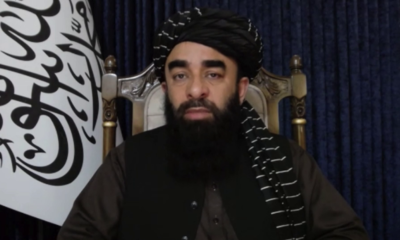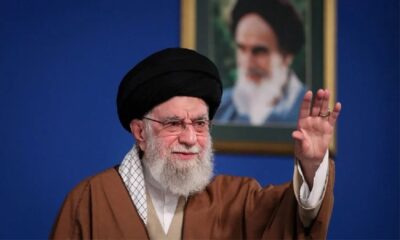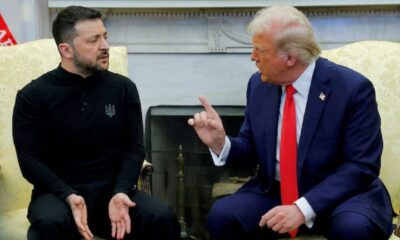Latest News
World Food Programme wins Nobel Peace Prize

The UN World Food Programme (WFP), which provides lifesaving food assistance to millions across the world has been awarded the 2020 Nobel Peace Prize.
The announcement was made by Berit Reiss-Andersen, the chairman of the Nobel Committee Friday in Oslo, the capital of Norway.
Berit stated that the WFP was awarded the prize “for its efforts to combat hunger, for its contribution to bettering conditions for peace in conflict-affected areas and for acting as a driving force in efforts to prevent the use of hunger as a weapon of war and conflict.”
“We are deeply humbled to receive the Nobel Peace Prize. This is an incredible recognition of the dedication of the WFP family, working to end hunger every day in 80+ countries,” the WFP’s executive director, David Beasley, wrote on Twitter following the announcement.
We are deeply humbled to receive the #NobelPeacePrize. This is an incredible recognition of the dedication of the @WFP family, working to end hunger everyday in 80+ countries.
Thank you @NobelPrize for this incredible honor! pic.twitter.com/bHcS0usWQa
— David Beasley (@WFPChief) October 9, 2020
“It’s because of the WFP family…They’re out there in the most difficult, complex places in the world. Whether it’s war, conflict, climate extremes — it doesn’t matter. They’re out there, and they deserve this award,” Beasley said in a video to the organization and its staff.
“Wow. Wow. Wow. Wow. I can’t believe it!” Beasley added.
WFP is the largest humanitarian organization in the world. The UN stated that last year, the organization has assisted 97 million people in 88 countries.
The UN said Friday the WFP’s efforts focus on emergency assistance, relief and rehabilitation, development aid, and special operations. Two-thirds of the work is in conflict-affected countries where people are three times more likely to be undernourished than those living in countries without conflict.
Meanwhile, the WFP said in a statement on Friday that the awarding of the Nobel Peace Prize to the World Food Programme (WFP) is a humbling, moving recognition of the work of WFP staff who lay their lives on the line every day to bring food and assistance for close to 100 million hungry children, women and men across the world. People whose lives are often brutally torn apart by instability, insecurity, and conflict.
“The Nobel Peace Prize is not WFP’s alone. We work closely with government, organizations, and private sector partners whose passion for helping the hungry and vulnerable equals ours,” the statement read.
The Nobel Prize is awarded to ‘those who, during the preceding year, shall have conferred the greatest benefit on mankind’.
Prizes in physics, chemistry, physiology or medicine, literature, and peace have been awarded since 1901 – and economic sciences since 1968.
The 2020 Nobel Prize winners are:
- The 2020 Nobel Prize in Physiology or Medicine has been awarded jointly to Harvey J. Alter, Michael Houghton and Charles M. Rice “for the discovery of Hepatitis C virus.”
- The 2020 Nobel Prize in Physics was awarded with one half to Roger Penrose and the other half jointly to Reinhard Genzel and Andrea Ghez. The Nobel Committee said, “Roger Penrose has been awarded the #NobelPrize in Physics “for the discovery that black hole formation is a robust prediction of the general theory of relativity.” “Reinhard Genzel and Andrea Ghez have been awarded the #NobelPrize in Physics “for the discovery of a supermassive compact object at the centre of our galaxy,” the committee noted.
- The 2020 Nobel Prize in Chemistry has been awarded to Emmanuelle Charpentier and Jennifer A. Doudna “for the development of a method for genome editing.”
- The 2020 Nobel Prize in Literature is awarded to the American poet Louise Glück “for her unmistakable poetic voice that with austere beauty makes individual existence universal.”
- The 2020 Nobel Prize in Literature is awarded to the American poet Louise Glück “for her unmistakable poetic voice that with austere beauty makes individual existence universal.”
- The WFP has been awarded the 2020 #NobelPeacePrize for its efforts to combat hunger, for its contribution to bettering conditions for peace in conflict-affected areas and for acting as a driving force in efforts to prevent the use of hunger as a weapon of war and conflict.
Latest News
Switzerland re-establishes presence in Kabul with humanitarian office
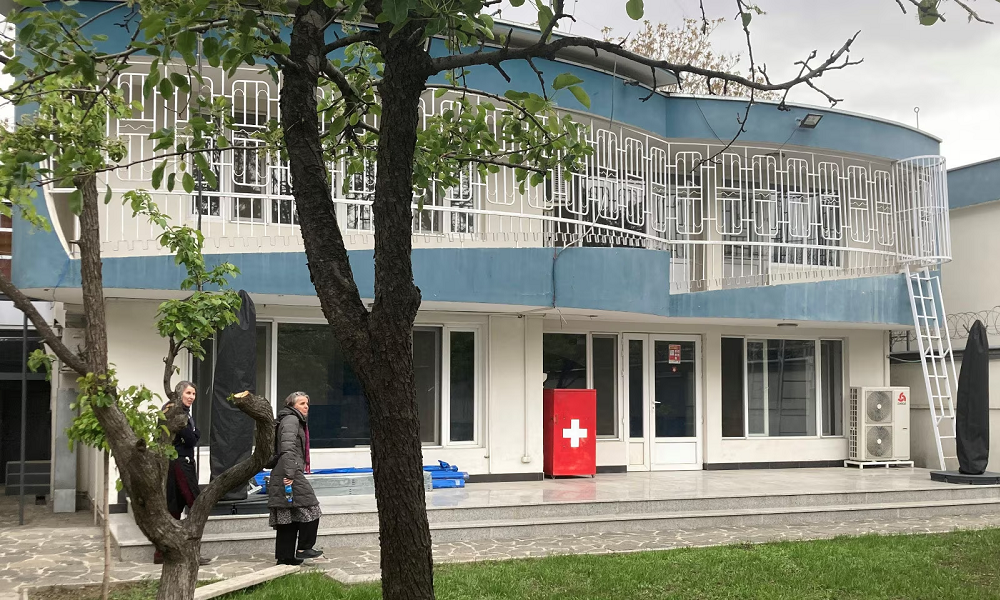
Switzerland’s foreign ministry announced on Monday it re-established its presence in Kabul by opening a humanitarian office to assist Afghanistan’s most vulnerable populations.
The ministry said in a statement that with 24 million people in Afghanistan relying on humanitarian aid and most of the population living below the poverty line, the office aims to provide critical support.
Four specialists from the Swiss Humanitarian Aid Unit (SHA), along with ten local employees, are now working on the ground. Their efforts are focused on ensuring that vulnerable communities receive the necessary resources to meet their basic needs, helping to alleviate the ongoing humanitarian crisis in the country, the statement read.
Since the IEA’s takeover in August 2021, Switzerland closed its cooperation office in Kabul and evacuated all its staff.
Latest News
Pakistan plans to expel 3 million Afghan refugees this year
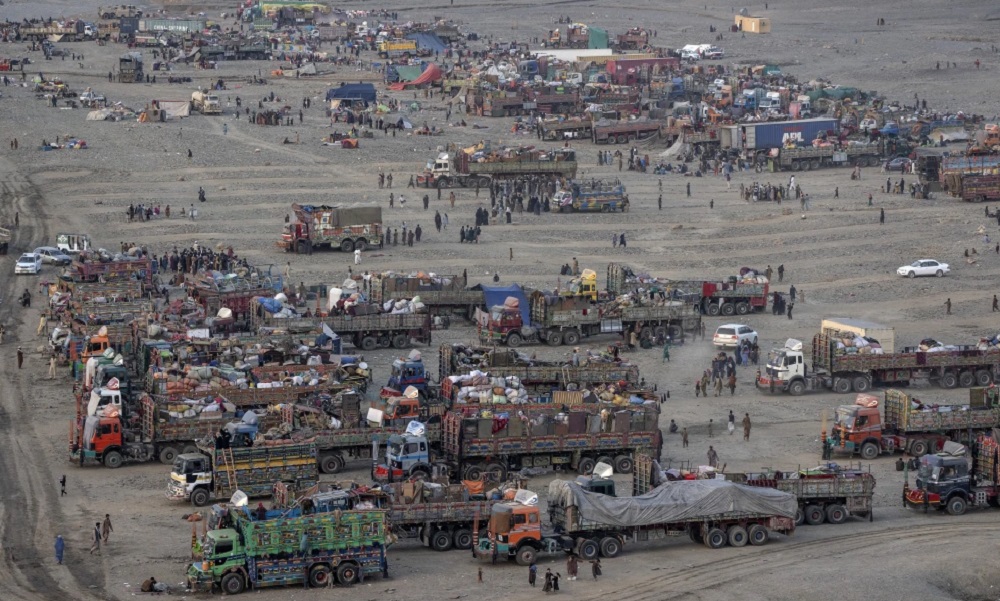
Pakistan plans to expel 3 million Afghans from the country this year, as a deadline for them to voluntarily leave the capital and surrounding areas expired on Monday, The Associated Press reported.
It’s the latest phase of a nationwide crackdown launched in October 2023 to expel foreigners living in Pakistan illegally, mostly Afghans. The campaign has drawn fire from rights groups, the Islamic Emirate, and the U.N.
Arrests and deportations were due to begin April 1 but were pushed back to April 10 because of the Eid al-Fitr holidays marking the end of Ramadan.
About 845,000 Afghans have left Pakistan over the past 18 months, figures from the International Organization for Migration show.
Pakistan says 3 million Afghans remain. Of these, 1,344,584 hold Proof of Registration cards, while 807,402 have Afghan Citizen Cards. There are a further 1 million Afghans who are in the country illegally because they have no paperwork.
Pakistan said it will make sure that Afghans do not return once deported.
Authorities wanted Afghan Citizen cardholders to leave the capital Islamabad and Rawalpindi city by March 31 and return to Afghanistan voluntarily or be deported.
Latest News
Some countries preventing Afghanistan from gaining its seat at the UN

The Islamic Emirate’s spokesperson Zabihullah Mujahid says some Western countries, including the US, are preventing Afghanistan from gaining its seat at the United Nations.
Mujahid added that the US and its allies hold significant influence over the policies of the UN, and due to their defeat in the Afghanistan war, they are attempting to continue wartime policies.
“Some countries that fought against the Afghans for twenty years still have not changed their wartime policies and continue along the same path, which naturally has its effects,” said Mujahid.
He emphasized that the Afghan people have the right to secure this seat, and the IEA will continue to work to obtain it.
He also rejected the notion of Afghanistan being isolated, stating that despite Western pressures, the acting government has expanded its diplomatic relations with regional and global countries.
He stated: “Afghanistan is not isolated; every country naturally faces some challenges with others, but we have extensive regional and international engagements.”
However, experts believe that the UN will not grant Afghanistan’s seat to the IEA until they take concrete steps to meet the international community’s preconditions, such as establishing an inclusive government, ensuring human rights—especially women’s and minority rights—and effectively combating terrorism and narcotics, to satisfy the world.
Despite over three and a half years since the IEA’s takeover, no country has officially recognized the regime.
Meanwhile, many countries have engaged with the IEA and established good diplomatic relations with the caretaker government, which the IEA believes serves as a form of recognition of Afghanistan’s current government.
-

 Latest News5 days ago
Latest News5 days agoAfghanistan has the right to access Amu River’s water: Uzbek minister
-

 Latest News4 days ago
Latest News4 days agoAmnesty international urges Pakistan to halt Afghan deportations
-
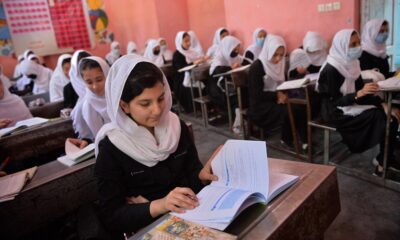
 Latest News5 days ago
Latest News5 days agoUN ‘deeply disappointed’ over ongoing ban on girls’ secondary education
-

 Latest News4 days ago
Latest News4 days agoAfghanistan-Iran-Europe railway corridor activated
-

 Business4 days ago
Business4 days agoAfghanistan ships first consignment to Europe via Khaf-Herat railway
-

 Business3 days ago
Business3 days ago36 mining contracts inked over the past year: Mines ministry
-

 Sport4 days ago
Sport4 days agoDe Kock fireworks see Kolkata thrash Rajasthan in IPL
-
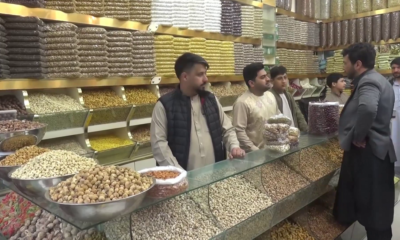
 Latest News3 days ago
Latest News3 days agoDried fruit market in Herat booms ahead of Eid-al-Fitr


